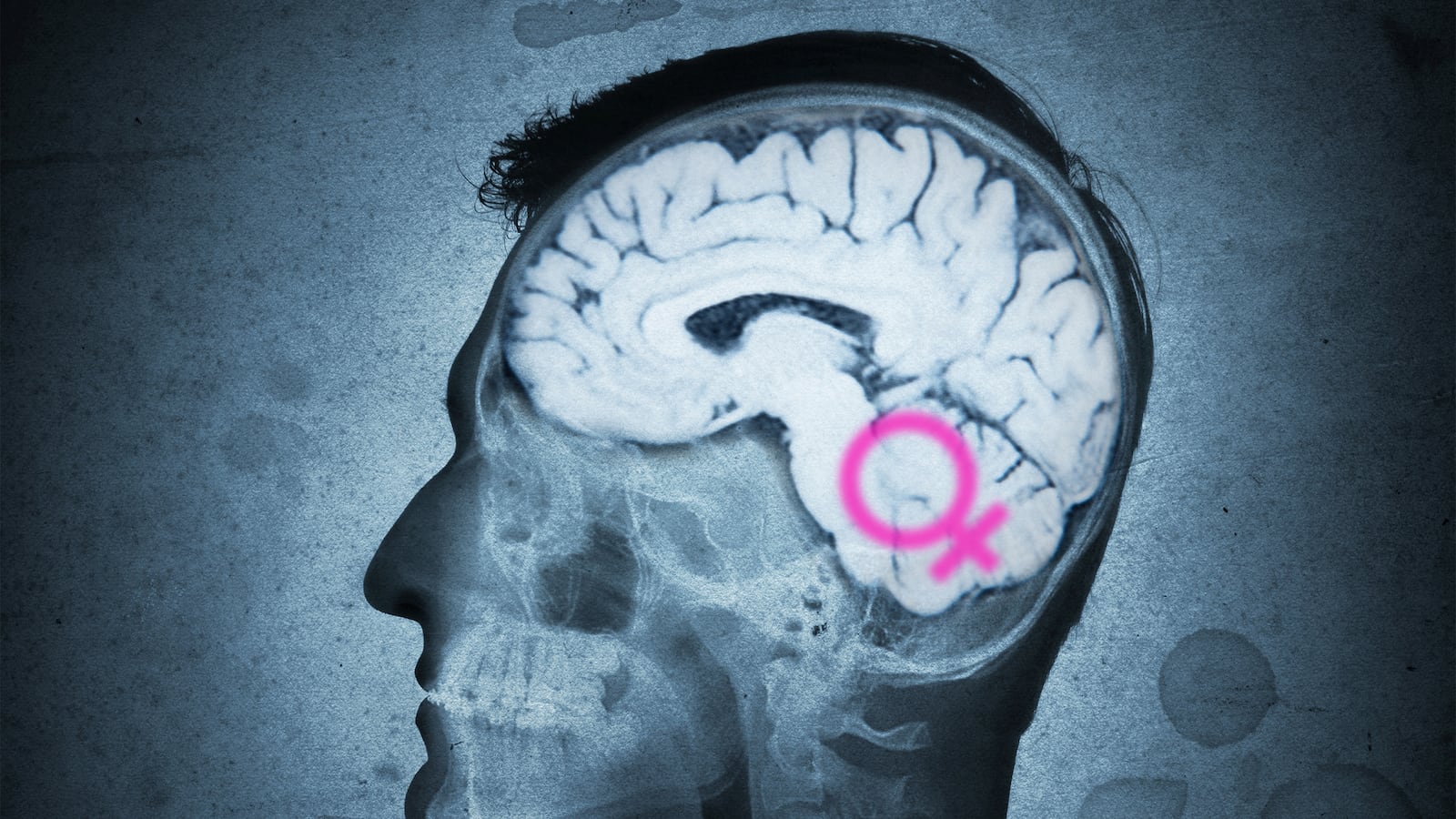Sexism is deeply ingrained in our patriarchal society, alive and well in our misogynistic culture—or so the rhetoric goes. Now we can blame “neuroscience,” too, thanks to a new study, which found that sexist views can be inferred from brain anatomy.
Looking at the brain structure of 681 students (306 of whom were women; average age was 21), researchers in Japan found that the brains of those with sexist attitudes looked different than those who believed in gender equality.
Published in the journal Scientific Reports, the study also found correlations between sexist views and “a wide range of mental health problems” like depression, anxiety, and alcoholism.
Participants in the study were asked to measure their “Sex Role Egalitarianism” (SRE)—defined by authors as “the belief that the sex of an individual should not influence the perception of his or her rights, abilities, obligations, and opportunities”—based on whether or not they agreed with statements like “household labor should be a collaborative work between sexes” and “women need not work unless they are economically inconvenienced. (Disagreeing with the first statement and agreeing with the second would indicate a low SRE score.)
Researchers then scanned the students’ brains and found that their brain structure reflected their SRE score. Specifically, the scans revealed that participants with low SRE scores had dense gray matter (high cell activity) in the posterior cingulate cortex, a part of the brain associated with processing emotions like fear and anger. From there, they drew a correlation between espousing sexist beliefs and being prone to anger.
Low SRE scores also correlated with less dense gray matter in the right amygdala, indicating that sexist people may be more likely to suffer from depression and anxiety.
The study’s findings suggest that both men and women who espouse sexist beliefs have other psychological issues.
But Jesse Rissman, a professor specializing in biobehavioral sciences at UCLA’s Brain Research Institute, says the study has not yet identified a structural brain correlate of sex stereotypes.
While the study found a correlation between sexist views and anger issues, depression, and anxiety, the correlation was very weak. Indeed, low gray matter density in the right amygdala accounted for less than 2 percent of a low SRE score. The correlation between dense gray matter in the posterior cingulate cortex and low SRE was similarly weak—less than 7 percent.
“One needs to be cautious when searching for associations between brain structure and cognitive function or personality traits,” Rissman told The Daily Beast. “When one finds relationships like this, even in a large sample size, it’s important to replicate the study in an independent sample before jumping to conclusions about the importance of these regions in the brain.
“I would classify these results as intriguing, but more experimental work is needed to determine if they are consequential to our understanding of Sex Role Egalitarianism.”
The researchers also referenced a previous study that suggests having a positive outlook on life can boost gray matter density in the right amygdala.
But they take a huge leap in applying those findings to their own, writing that “improving negative mood may prevent stereotype on sex role [i.e. reduce gender discrimination] and may mitigate a wide range of problems associated with lower Sex Role Egalitarianism.”
By that logic, someone ranting on Facebook about how women don’t belong in the workplace isn’t sexist; he’s just in a bad mood.






